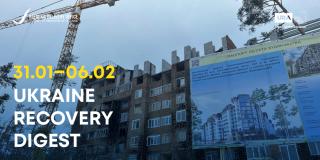During its first meeting this year, the Cabinet of Ministers of Ukraine resolved to set up a Strategy Committee. Why do we need a new committee? What tasks will it be dealing with? What does it mean for the public administration reform?
The Government already has a few government committees working, so the creation of another one with a loud name chaired by the Prime Minister caused heated discussion by the politically active segment of the society.
The key idea behind the Strategy Committee is to create conditions where the Government can indeed move to policy making, strategic and budget planning based on international standards.
There is a joint initiative of the Organization for Economic Co-operation and Development (OECD) and the EU specifically set up to develop effective public administration systems — SIGMA. Based on SIGMA criteria, primary signs of good performance of any government as a bureaucratic machine include its ability to formulate and implement policies.
What are the practical implications? Before making any decision, one should understand the problem that the government intends to address and whether this is the best way of addressing this problem, analyze potential outcomes this decision may cause and discuss it with all stakeholders.
This approach to producing government decisions may be clear and logical, but it often is missing in the real life of the governmental machine.
Today, the "measure" of performance of civil servants (and ministries) is the number of regulations they have drafted and proposed to CMU instead of the number of problems in the society's life their activities address. The matter of what problems their regulations aim to address often is not even raised.
The Baseline Measurement Report (regarding Ukraine's civil service performance) prepared by SIGMA experts in the summer of 2018 described the status of public administration in Ukraine as satisfactory by using enhanced criteria necessary for becoming an EU member. Some figures are comparable with those of the Balkan countries.
But even though the Government adopted a medium-term action plan in 2017 for the first time and bases its annual actions on it, Ukraine was awarded 1 point out of 5 for "quality of public policy planning."
This is why key goals of the public administration reform started in 2016 include the introduction of procedures of quality policy making as the main operating objective of ministries.
Reform Expert positions and new structural units, directorates, were created in 2017–2018 as part of the reform. Their key function is to help the ministries move from following the "process for the sake of process" principle to making policies aimed to address social problems.
So far, the ministries have hired more than 500 reform experts, and some directorates have even started introducing new approaches in their work. However, the implementation of new procedures and a changeover to a new governance model that the society could experience firsthand remain a challenge.
Why?
Unfortunately, many policy-makers still demonstrate no demand for a new product, quality policy.
What demand can there be for a complicated and long process of policy making when the main product of ministries discussed at CMU meetings is regulations?
For this reason, governmental policy-makers should be more focused on comparative tables, wordings, and specific changes an act is making to other regulations rather than on the "wide picture."
Besides, given huge agendas of each government meeting, CMU members keep sinking under the sheer volume and detail of legal formulations of draft directives and resolutions.
Instead of discussing whether an appropriate approach to problem resolution has been proposed to the Government and how it will impact the society and at what price, discussions center around individual phrases and tools. This undermines focus on the systemic vision and addressing of problems.
In this environment, it is the execution of instructions and the drafting of individual regulations (so called administrative micromanagement or "the mode of constant fire-fighting") rather than policy formulation that become the measure of operating performance of ministries' structural units, including newly created directorates.
This in turn causes another problem on a much wider scale.
In developed countries, it is the policy itself rather than a regulation as a policy tool that is the product of ministries. If there are no policies, there is no quality strategic planning or quality budget planning.
A quality government strategy means not only a vision of the country the Government plans to build but also a clear and calculated step-by-step plan of how it proposes to reach this "better future."
This plan is made up of specific policies with clear goals, clear indicators of their achievement, and, most importantly, an assessment of their value for the state and strict control of timely and complete execution.
Quality budget planning means financial resources are committed to the implementation of the Government's priority policies and predictability of the scope of funding per policy for 3 to 5 years ahead.
It is only an existing clear policy with specific and measurable targets that help evaluate whether it is reasonable for the Government to spend money on it, whether this policy produces expected added value for the society and, accordingly, whether it should be funded.
This is clearly and unambiguously stated in Guidelines for Public Expenditure Management (Potter and Diamond, 1999), Strategic and Budget Planning of the Government in Ukraine: Road to Reform, a research paper prepared with the support of the Government of Sweden (2013), and Public Financial Management: An Overview, a research paper of the IMF technical assistance mission (2016).
Conversely, lack of quality policies is a serious roadblock to the introduction of a quality medium-term budgetary framework in Ukraine.
The problem of lacking channels for discussing policy documents instead of regulations in the Government became obvious in 2018. This is why they started considering the creation of a special government committee to analyze key issues at the intersection of strategic and budget planning and public policy making.
The Government should have a platform for the Prime Minister and ministers representing sector-specific policies to discuss the merits of strategic documents, policy documents, and their links with the national budget, on the highest level.
Natural key objectives of this government committee would include:
- discussing and approving policy documents (no matter what they are called — "political proposals," "strategies," "concepts," "policy concepts" etc.) on the top political level;
- discussing policy priorities — policies of highest and lowest priority for the Government;
- allocating budget resources for the next year and for the medium term based on policy priority.
More or less formalized, these formats of interaction of top officials exist in many countries and are part of budget planning.
The Strategy Committee presented on January 10 is such an attempt to create an additional platform for discussing draft policies on the top political level. An attempt to pilot-test an idea in the context when it is practically impossible to quickly change the format of government meetings because it is very difficult to change approaches that took decades to crystallize.
For the pilot to succeed, it is crucial for all Strategy Committee members to get involved — the Prime Minister, vice ministers, and all ministers because only they are authorized to make necessary political decisions.
The Committee's success also relies on ministers to use the policy-making potential of directorates, which is their top priority objective (based on Regulations on Directorates).
If this pilot succeeds, it will be a great move ahead in the reform of all government proceedings and an improvement in the quality of its decisions and public administration as a whole. Otherwise, this Committee risks turning into a formality — discussing subtleties with persons not authorized to make political decisions.
This initiative suggests the Prime Minister understands the importance of this matter and strives to introduce modern practices in the Government's activities.
Hopefully, this attempt will succeed and be able to shift the focus of the Government and ministers followed by the entire state machinery from routine and performance measurement by the number of regulations to policy making. Both Government officials and the society at large will benefit from this.
Daryna Marchak, Kyrylo Klymenko, for UP



